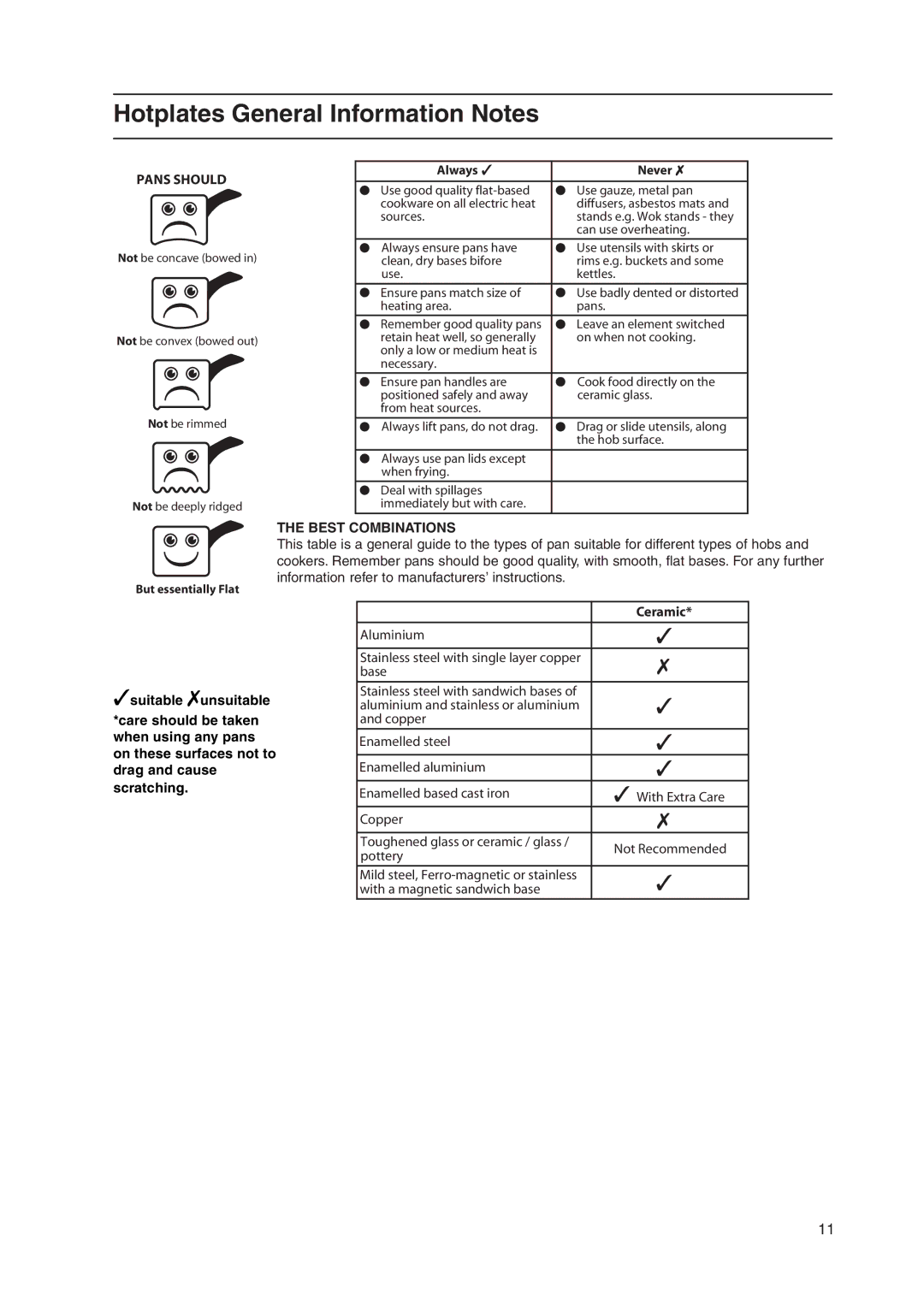
Hotplates General Information Notes
PANS SHOULD
Not be concave (bowed in)
Not be convex (bowed out)
Not be rimmed
Not be deeply ridged
But essentially Flat
✓suitable ✗unsuitable
*care should be taken when using any pans on these surfaces not to drag and cause scratching.
Always ✓ | Never ✗ |
|
|
Use good quality | Use gauze, metal pan |
cookware on all electric heat | diffusers, asbestos mats and |
sources. | stands e.g. Wok stands - they |
| can use overheating. |
Always ensure pans have | Use utensils with skirts or |
clean, dry bases bifore | rims e.g. buckets and some |
use. | kettles. |
Ensure pans match size of | Use badly dented or distorted |
heating area. | pans. |
Remember good quality pans | Leave an element switched |
retain heat well, so generally | on when not cooking. |
only a low or medium heat is |
|
necessary. |
|
Ensure pan handles are | Cook food directly on the |
positioned safely and away | ceramic glass. |
from heat sources. |
|
Always lift pans, do not drag. | Drag or slide utensils, along |
| the hob surface. |
Always use pan lids except |
|
when frying. |
|
Deal with spillages |
|
immediately but with care. |
|
THE BEST COMBINATIONS
This table is a general guide to the types of pan suitable for different types of hobs and cookers. Remember pans should be good quality, with smooth, flat bases. For any further information refer to manufacturers’ instructions.
Ceramic*
Aluminium
Stainless steel with single layer copper base
Stainless steel with sandwich bases of aluminium and stainless or aluminium and copper
Enamelled steel
Enamelled aluminium |
| |
|
| |
Enamelled based cast iron | With Extra Care | |
Copper |
| |
|
| |
Toughened glass or ceramic / glass / | Not Recommended | |
pottery | ||
|
Mild steel,
11
